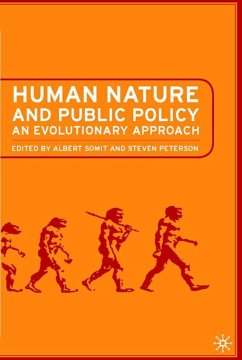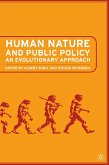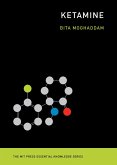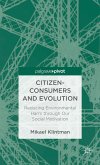The essays in this collection explore the implications that the growing challenge from "evolutionary" concepts of human nature have in various policyareas and show what must be done to ensure that policies conform to humanbehavior and its limits for change. As our conceptualizations of humanbehavior switch from one that says human behavior is a product of culture(through learning and socialization) to one that claims that behavior isthe outcome of both cultyre and genetics and biology, it is necessary for public policy to change as well. The contributors in this volume examine what happens when it is no longer possible to base policy solely on the basis ofculturally-constructed human behavior. Many argue that to ignore "nature" onbehalf of "nurture" will result in incomplete solutions to social, political, and economic problems.
Arguing for an evolutionary perspective, this book directly challenges the Standard Social Science Model (SSSM) on which public policy has often been based. The SSSM maintains that human behavior is solely the product of culture and learning. In sharp contrast, the Evolutionary Model (EM) holds that our behavior flows from the interaction between learning and culture, on the one hand, and biological factors-especially our evolutionary legacy-on the other. These different approaches to human behavior understandably lead to divergent conceptions of sound domestic and foreign policy. The SSSM views human behavior as essentially plastic and thus readily changed by governmental action. Disagreeing, the Evolutionary Model sees that malleability as seriously limited by our species' evolved propensity for aggression, status seeking, xenophobia, ethnocentrism, and hierarchical social structures.
Arguing for an evolutionary perspective, this book directly challenges the Standard Social Science Model (SSSM) on which public policy has often been based. The SSSM maintains that human behavior is solely the product of culture and learning. In sharp contrast, the Evolutionary Model (EM) holds that our behavior flows from the interaction between learning and culture, on the one hand, and biological factors-especially our evolutionary legacy-on the other. These different approaches to human behavior understandably lead to divergent conceptions of sound domestic and foreign policy. The SSSM views human behavior as essentially plastic and thus readily changed by governmental action. Disagreeing, the Evolutionary Model sees that malleability as seriously limited by our species' evolved propensity for aggression, status seeking, xenophobia, ethnocentrism, and hierarchical social structures.
'This book proposal looks good. A book that would show how evolutionary theory illuminates many areas of public policy would be a great advance in the social sciences. Such a book could become a standard textbook in public policy courses as representing a newly emerging biological stance on the social sciences'. - Larry Arnhart, Northern Illinois University








